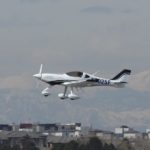Silicon Valley start-up ZeroAvia has developed a hydrogen fuel cell powertrain which it says will deliver the same performance as a conventional aircraft engine, alongside much lower operating costs.
Silicon Valley start-up ZeroAvia has developed a hydrogen fuel cell powertrain which it says will deliver the same performance as a conventional aircraft engine, alongside much lower operating costs.
ZeroAvia plans to start supplying its platform to commercial operators and aircraft manufacturers in 2022, initially targeting up to 500-mile regional flights (which make up 50% of worldwide departures) in 10 to 20-seat fixed-wing aircraft.
“Half the cost”
“With land transport rapidly decarbonising, fast-growing air transport is quickly becoming the leading emission source, so we must find ways to make aviation more sustainable,” said Val Miftakhov, ZeroAvia Founder and CEO.
“Using hydrogen produced from local renewable energy is the most practical way to enable zero-emission aircraft of commercially meaningful size on traditional 300 to 500-mile regional missions. It will also be more economical than conventional turbine engines, or even the battery-based systems, on the total cost basis.
“We calculate the total costs of operating a ZeroAvia aircraft to be close to half of what it costs to fly a conventional turbine aircraft, due to lower fuel input costs, higher powertrain efficiency, and reduced maintenance costs.”
The company is already flight testing its powertrain prototype in a Piper M-Class airframe.
The Federal Aviation Administration issued an Experimental R&D Certificate to ZeroAvia’s Piper M-Class R&D platform earlier this year.
World’s largest zero-emission aircraft
At a 2-ton take-off weight and six seats in a business-class arrangement, it is currently the world’s largest zero-emission aircraft flying without any fossil fuel support, according to the publicly available information.
The aircraft has completed a variety of test flights, which validated key components and their integration into a complete powertrain system.
In addition to passenger transport, the ZeroAvia powertrain will have applications across other use cases including cargo, air taxi, agriculture, as well as across the aircraft types, including manned and unmanned fixed-wing, rotorcraft “and everywhere in between,” the company says.
Serial cleantech entrepreneur Val Miftakhov, who is also an avid aeroplane and helicopter pilot, previously founded and was the CEO of eMotorWerks, a smart grid electric vehicle charging company which was acquired in 2017. The core leadership team at ZeroAvia includes people who formerly worked at Tesla, BMW, NVIDIA, Zee Aero, Air Liquide, and SystemIQ, as well as other founding members of eMotorWerks.

